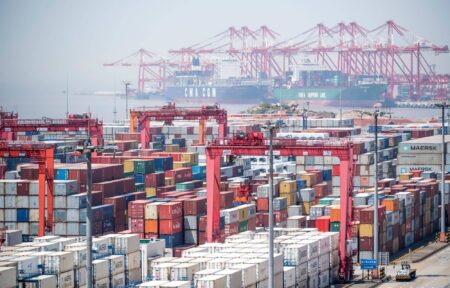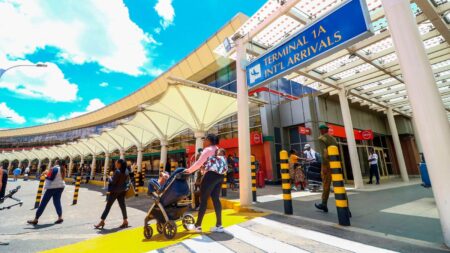As part of your positive reinforcement regimen, you have probably bought junior that tasty chocolate biscuit that he loves so much or the packaged ice cream that has him agreeing to anything you say. Did you know almost all snacks are made using the most popular vegetable oil in the World, Palm Oil?
Palm oil is used in the preparation of most processed foods from biscuits to chips to instant noodles. It is also used in the manufacturing of soap and cosmetics, and with the exponential increase in population, global demand for these products has equally put pressure on the demand for palm oil.
While palm oil is indigenous to West Africa, now the continent is losing almost 7.5 million acres of land to palm oil companies. Communities are been displaced and forests are been destroyed to make room for the coveted palm tree.
“In the past decade, West Africa and the Congo basin have leased out around 14.5 million acres of land for palm-oil plantations and” The Economist’s 2014 report.
Two years later in 2016, The Guardian reported far worse statistics, “…as much as 54 million acres of land in west and central Africa could be converted to palm plantations over the next five years.”
“”Palm oil has become the most important vegetable oil worldwide. Production has been doubling worldwide every 10 years during the past 40 years,” cites Thomas Mielke, CEO of the market analysis firm Oil World.
“Palm oil companies will not just displace [people in affected communities], but their culture, their history, their value, their traditional institutions, will all be completely altered,” warns Alfred Brownell, founder of Green Advocates, a network of Liberian lawyers advocating for environmental rights among other socio-economic issues.
https://theexchange.africa/industry-and-trade/agribusiness/tanzania-plans-to-revive-palm-tree-farming/
Land Grabbing for Palm Oil Production
To meet this great demand for palm oil, multinational companies are buying or leasing millions of acres across West and Central Africa, modern day land grabbing. The land so obtained is then cleared and only palm oil trees are grown, vegetation is gone, forests are mowed down, communities are displaced, like I said, modern day land grabbing.
“Liberia has probably been the most impacted by the expansion of palm oil production. Water is polluted, land that had always been treated and farmed as a communal has been lost to palm, and areas where people used to go for hunting and trapping are gone. They have converted all the land for plantation purposes,” attests Daniel Krakue of Social Entrepreneurs for Sustainable Development, a prominent nonprofit in the country that is also fighting land grabbing there.
In Sierra Leone, a Singapore based palm oil company, Siva Group, was forced to return land to the community and pay hundreds of thousands of dollars in unpaid rent. This was thanks to grassroots legal advocates representation and demanding for enforcement of laws to protect communities from land grabbing.
While farmers are losing land for vegetable farming, it is at the end of the day, it is more profitable for governments to lease out land to large companies for palm oil production. In fact, even the small scale farmers are not at all against palm oil production, they too want a piece of the cake, so to speak.
However, they cannot afford to compete with the deep pocketed international brands and so they are been boxed out. Advocates are fighting for the rights of these communities, because in some instances, their land is actually sold even without their knowledge.
In other cases, the farmers are compensated but the little money they get can only last them for so long and soon they are out of money and out of land. So a land sharing, contract system, has been developed to give the farmers a fighting chance.
Under the out grower system, the farmers get small tracts of land where they too grow palm oil trees beside the large plantation owners. The difference is they get to be entrepreneurs growing the money tree rather than wage labourers working for the plantation owners.
West Africa’s cocoa coup and what it could mean for the continent
Fair trade for biscuits and crackers?
It seems the only way to snip the claws of the multinational companies from land grabbing and to push them to offer better deals to farmers in the out grower system or even for better pay of their labourers is to adopt the coffee and tea fair trade approach.
You see, when you are in the urban areas, even in Africa but more so in the West and the US, and you are cruising down a supermarket aisle, it is hard to picture land loss in Africa (and Asia) as you stare at the colourful packets of snacks that you will savor so much as you watch your favourite program.
That is the same case with coffee, before the fair trade movement caught on, you would not think of the hunchbacked woman toiling in the blazing tropical heat of Africa to collect the grains that make you latte.
However, with the fair trade movement, the customer has the power to push multinational companies to offer a better deal to farmers and to treat their employees better. In fair trade, Demand is the name of the game, should the end consumer choose to buy products that are branded with a fair trade symbol for palm oil, then producers will be forced to adopt fair trade terms in land acquisition and farmer compensation as well.
So the next time you are unwrapping your bar of mars chocolate ask yourself, who lost their land for me to enjoy this mouth watering delicacy? And please buy the one that has a fair trade stamp on it.
Coronavirus Africa update: Zanzibar permits tourism, under strict conditions











